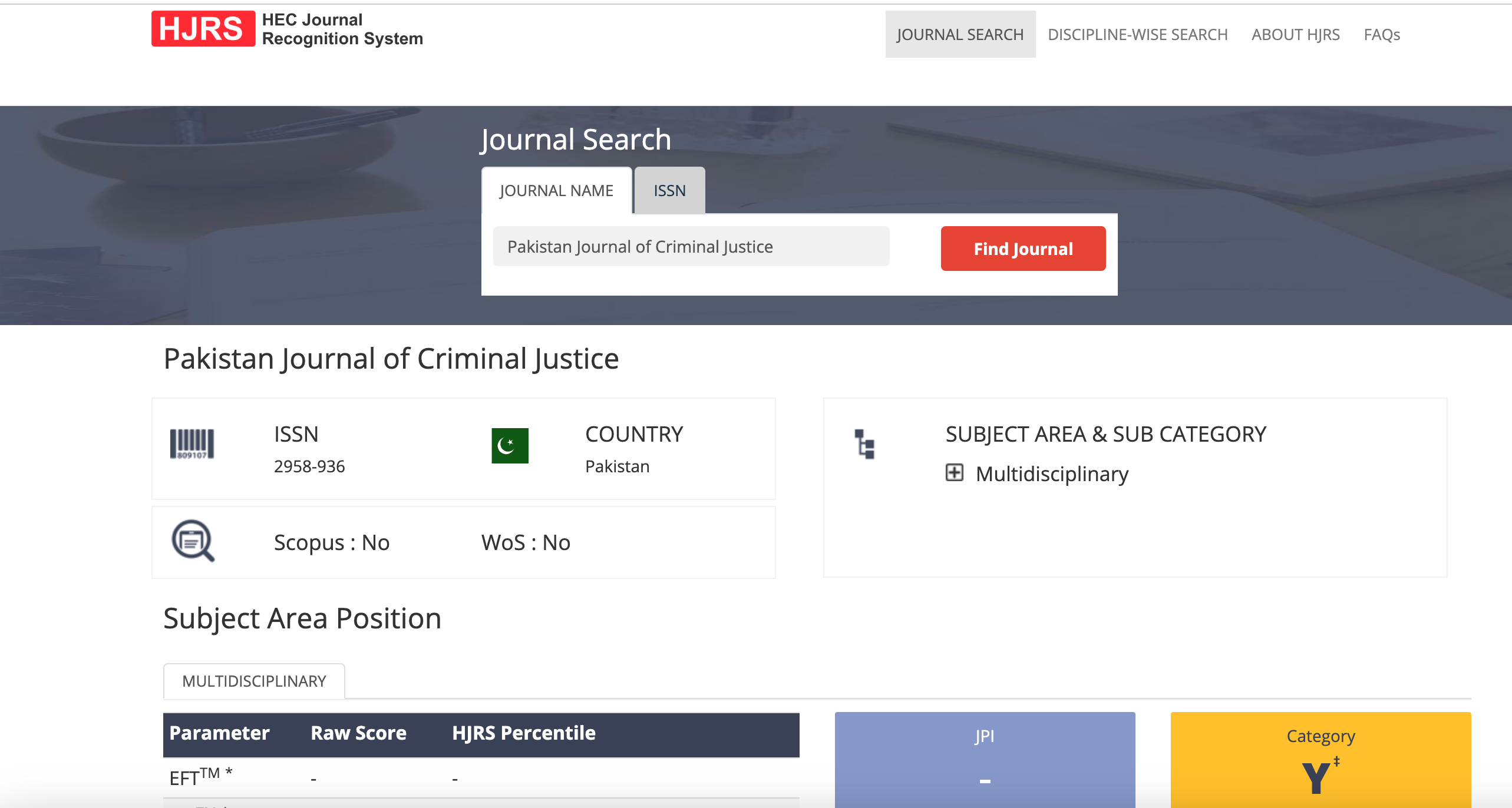Socio-Economic Implications of Delayed Justice: An investigation in to the recent practices in Pakistan
DOI:
https://doi.org/10.62585/pjcj.v4i1.65Keywords:
effeciency, justic delayed, pakistan justice, socio economicAbstract
The provision of justice speedily and fairly is a fundamental right of every citizen, which is conferred by various international and regional conventions and native laws. In the modern democratic era, the responsibility of dispensation of justice is mandated to the institutions of the judiciary. The judicial system in Pakistan, along with the district courts, is the initial and most important forum for providing justice. Unfortunately, the district judiciary cannot arrange the cases efficiently, which ultimately impacts their socio-economic impacts on the lives of litigants. The study's objectives are to evaluate the efficiency of district courts and identify the socio-economic impacts of courts' performance on litigants in civil cases.
Further, while implying quantitative methodology, the research reveals that the district judiciary is performing inefficiently and violating the values of the litigation process. Court services are neither expeditious nor inexpensive, leading to the socio-economic lives of litigants that are affected due to delays in the delivery of justice at district courts. The study recommended that the socio-economic impacts of court performance on litigants during the proceedings are unpropitious, allowing slow process modification into speedy justice.
Downloads
Published
How to Cite
Issue
Section
License
Copyright (c) 2024 Sehrish Neik Ch, Rashda Abbas, Usman Asghar

This work is licensed under a Creative Commons Attribution-NonCommercial 4.0 International License.





